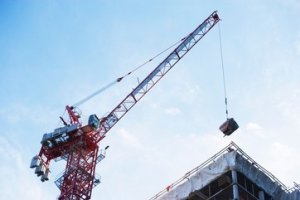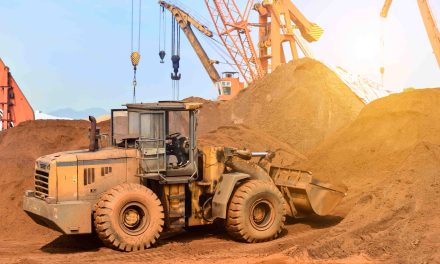Background
The Government of the Republic of Indonesia promulgated the law on construction services i.e Law No. 2 of 2017 on Construction Services (“Construction Services Law”) which became effective since 12 January 2017. The Construction Services Law revokes the previous construction services law in 1999.
This Construction Services Law is promulgated since the old law is considered unable to meet the demands and dynamics of the execution of construction services business. In addition, the adjustment of Construction Services Law is intended to accommodate the needs of law which occurs in empirical practices in society and the dynamics of legislation related to the implementation of construction services.
Below are some provisions regulated under the Construction Services Law:
Implementation of Construction Services Which Come From The Regional Revenues and Expenditures Budget
If the implementation of construction services uses the Regional Revenues and Expenditure Budget and fulfills the job criteria with (i) small risk to medium risk, (ii) a simple technology to the middle technology, and (iii) small cost to medium cost, the regional government can create the special policy including (i) co-operation with regional construction services business entity; and (ii) the use of the regional sub-service. This provision will be further regulated in Government Regulation.
Experience Registration Certificate
Every middle construction services business entities and big construction services business entities must register their experience to the Minister of Public Works and Housing to obtain the recognition of business experience. The experience registration is proven by experience registration certificate. The registered experience is the experience of performing construction services that has been delivered. This provision will be further regulated in Minister Regulation.
Construction Services Business Development
The construction services business development is conducted through a building supply business. Building supply business consists of the business of providing (i) building; and (ii) civil buildings. Building supply business is financed through investments deriving from (i) the central government; (ii) local government; (iii) business entities; and/or (iv) community.
Building supply business can be conducted individually or by other parties. The work which is conducted by the other party is performed through a building supply agreement. This provision will be further regulated in President Regulation.
Selection of Service Provider
The selection of service provider who uses financing from the state finance is conducted by:
1. tender or selection
tender or selection can be conducted through pre-qualification, post-qualification and quick tender.
2. electronic procurement
it is a method for selecting the service providers who are already listed in the catalog.
3. direct appointment
it can be conducted due to:
- emergency management for security and safety;
- a complex work that can only be implemented by the very limited service providers or can only be executed by the rights holder;
- the work that needs to be kept confidential concerning the safety and security of the state;
- small-scale work; and/or
- certain conditions.
4. direct procurement
it is conducted for the package with a definite value.
If the selection of construction consultancy service provider that uses the construction manpower in the hierarchy of experts, service user must pay attention to the minimum remuneration standard.
Additional Provisions in Construction Contract
The additional provisions that need to be included in the construction contract are as follows:
- the provision on sub-service and suppliers of materials, building components and/or equipment which must meet the applicable standards for the implementation of construction services; and
- the obligations for the transfer of technology if construction contract is conducted with foreign parties.
Standard of Security, Safety, Health, and Sustainability (K4)
The standard of K4 at least includes:
- the material quality standard;
- the quality equipment standard;
- the safety and health work standards;
- the standard procedure of construction service;
- the quality standard of the results of construction services;
- the standard of operation and maintenance;
- guidelines for social protection of labor in the execution of construction services in accordance with the provisions of the legislation; and
- environmental management standards in accordance with the provisions of the laws and regulations.
The term of K4 in this provision is different than the term of K3 contained in the Government Regulation No. 50 of 2012 on Implementation of Safety Management System and Work Health (“PP 50/2012”). Work Health and Safety (K3) are all activities to guarantee and protect the safety and health of manpower through the prevention of occupational accidents and occupational diseases. Article 11 of PP 50/2012 stipulates that the employer must perform the following activities in implementing K3 plan in compliance to the requirements of K3 at least includes:
- control act;
- design and engineering;
- procedures and work instructions;
- delivery part of work;
- purchase/procurement of goods and services;
- final product;
- effort to deal with emergency accidents and industrial disasters; and
- planning and recovery of emergency situation.
The activity of number 1 to number 6 are implemented based on hazard identification, assessment, and risk management and the activity of number 7 and number 8 are implemented based on the potential hazard, investigations and analysis of accidents.
The provisions of K4 for each product of construction services will be regulated by the related technical minister in accordance with their authority.
Arrangement of Manpower
Construction manpower is classified by science related to construction services. Construction manpower consists of:
- operator;
- technician or analyst; and
Every construction manpower must register to the Minister of Public Works and Housing to obtain the recognition of professional experience. The registration is proven by professional experience certificate. Every construction manpower who had work competence certificate is entitled to a reasonable compensation for services rendered.
Foreign workers may perform construction work in Indonesia only at certain positions in accordance with laws and regulations. Foreign workers must have the registration letter. The registration letter is provided based on the competence certificate according to their national law. Foreign construction manpower in expert position is required to implement the transfer of knowledge and technology to the accompanying manpower in accordance with the laws and regulations.
Construction Services Information System
The integrated information system is set up to provide the accurate and integrated data and information in the implementation of construction services. Integrated information system contains data and information related to:
- the responsibility and authority in the field of construction services which is performed by the central government and regional government;
- coaching duties in the field of construction services which is conducted by central government and regional government; and
- the service duty in the field of construction services which performed by community construction services.
Each user services and service providers and institutions related to construction services must provide data and information in the context of the coaching duties and services. Integrated information system is managed by the central government.
Community Complaint
If there is a community complaint on an alleged crime and/or an intentional offense in the implementation of construction, the investigation process for service users and/or service providers is conducted by not interfering or stopping the process of the construction services.
If the community complaints related to the state’s losses in the implementation of construction service, the investigation process can only be conducted based on the results of the examination of the authorized state’s agencies which has the authority to examine the management and responsibility of the state’s finance.
Nevertheless, the process of the construction can be stopped and the investigation process can be conducted without deriving from the results by the authorized state’s institution if:
- the loss of a human life; and/or
- red-handedly caught committing corruption.
Additional Provisions Related to Dispute Resolution
The stages of dispute resolution, which are known, i.e (i) concensus; and (ii) the stages which are agreed by the parties in the contract construction such as mediation, conciliation and arbitration. Moreover, the parties can set up a dispute council in which the member elections are based on the principles of professionalism and not be a part of the parties.
Elimination of Criminal Sanctions
The Construction Services Law has removed the criminal sanctions and emphasized more on administrative sanctions.
The types of administrative sanctions that are listed in the Construction Services Law are as follows:
- a warning letter;
- the administrative fines;
- dismissal from duty;
- removal from the list of the registered expert reviewers;
- the suspension of activities construction service;
- inclusion in the blacklist;
- freezing of accreditation;
- revocation of accreditation;
- freezing of the license;
- revocation of license;
- the suspension of permit; and/or
- the revocation of permit.
On the previous construction service law, criminal sanction was aimed to the construction planner, contractor, and construction supervisor who does not fulfill, violates, non-conforming, or deviates toward the technical requirement and caused the failure of construction work or building failure.







